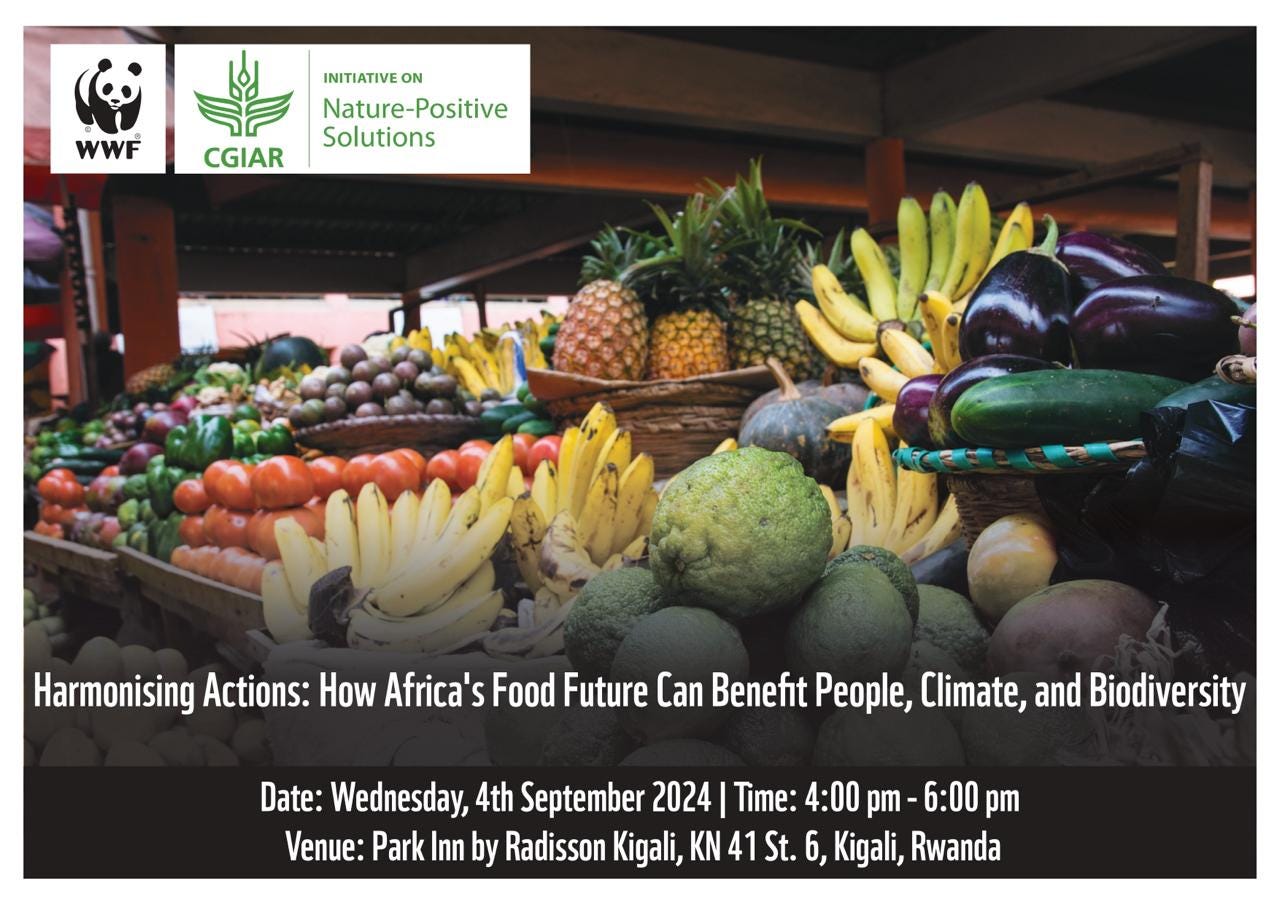WWF to Promote Sustainable Food Systems at African Summit in Rwanda
The conservation group aims to address the diverse factors driving change in Africa's food systems, including climate change, population growth, urbanization, and shifting diets.
KIGALI, Rwanda — The World Wide Fund for Nature (WWF) is gearing up to champion ecological and climate-resilient food systems at the upcoming Africa Food Systems Annual Summit (AFS) 2024, scheduled for September 2-6 in Kigali, writes Winston Mwale.
The summit, themed "Innovate, Accelerate and Scale: Delivering Food Systems Transformation in a Digital and Climate Era," will bring together leaders in agriculture and food sectors from across Africa and beyond.
Ivan Tumuhimbise, Country Director of WWF Uganda, emphasized the importance of the event, stating, "This summit is a pivotal moment for us to engage with policymakers and influencers on the urgent need to align our food systems with ecological and climate resilience goals."
WWF's participation will focus on protecting Africa's critical ecosystems, which are vital for the continent's food security.
The organization aims to advocate for nature-positive solutions and the integration of climate resilience into agricultural practices.
Nancy Rapando, Africa's Food Future Initiative Lead, said, "Our goal at this year's Africa Food Systems Annual Summit is to ensure that African leaders and stakeholders recognize the essential connection between healthy ecosystems and sustainable food systems."
The summit, convened by the Alliance for a Green Revolution in Africa (AGRA) and key African governments, will be hosted by Rwandan President Paul Kagame.
It serves as a platform to establish long-term strategies for transforming Africa's agriculture and food systems.
WWF will host a parallel event on September 4 titled "Harmonising Actions: How Africa's Food Future Can Benefit People, Climate, and Biodiversity."
The organization will also participate in other key partner events, including a keynote address by Rapando on harnessing digital technologies for resilient food systems.
The conservation group aims to address the diverse factors driving change in Africa's food systems, including climate change, population growth, urbanization, and shifting diets.
WWF warns that insufficient consideration of these factors in agricultural policies could lead to catastrophic consequences for Africa's natural ecosystems and food security.




